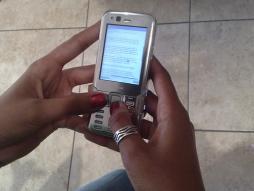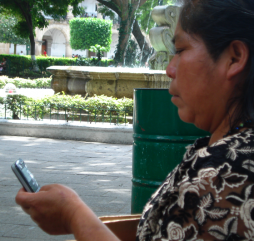m4d
Posted by AnneryanHeatwole on Apr 14, 2010
As we here at MobileActive.org have been covering ICT and mobiles for development now for more than five years, we have seen our fair share of failures. For every great project that changes how a community benefits from technology to improve the lives of its people, there seem to be twice as many projects that fail, and end up wasting time, money, and maybe worst, goodwill.
Too often in our field, we talk up our successes, overhype and overestimate the value of our projects, and sweep the failures under the rug. But, if we don’t talk about what didn’t work (and, perhaps more importantly, why it didn’t work), others will keep repeating the same mistakes.
That is why we invented FailFaire, a gathering that is happening tonight in New York City and that we hope will take place in other cities around the world. FailFaire is a place where it's ok to talk about what didn't work to learn from for the next project using mobiles for social change and development.
Posted by AnneryanHeatwole on Mar 22, 2010
Calling all failures! On April 14 we're hosting the first FAILfaire featuring a close look at ICT and mobile development projects that have crashed, burned, and simply FAILED.
While we often focus on highlighting successes and gains in this field, it's no secret that many projects just don't work - some aren't scalable, some aren't sustainable, some can't get around bureaucratic hoops, and many fail due to completely unanticipated barriers. FAILfaire is a platform to openly and honestly discuss failures so that we can learn from what hasn't worked in the past in order to make our future projects stronger and better.
This is where YOU come in. Have you been a part of a project that flopped? Maybe the project used the wrong technology for its region. Maybe it didn't engage the intended community. Did not take culture, people, or both into consieration. Or maybe the rollout was too rushed. Whatever the reason, we want to hear from you.
| Presenting the First-Ever FAILfaire: Join Us! data sheet 4969 Views |
| Countries: |
United States
|
Posted by KatrinVerclas on Jan 11, 2010
Information and Communication Technologies (ICTs) for social and economic development in emerging economies have long been a focus of governments, the private sector, and most certainly donors and international development agencies. Yes, despite all the attention garnered on this field, we are seeing a checkered history of ICTs as a tool for development, with both successes and significant failures littering the landscape.
With the phenomenal growth of mobile technology in the last ten years, the attention of donors, governments, and multi-lateral and international agencies has now turned to the telecommunications sector and mobile technologies as channels to deliver services and products to citizens at the bottom of the economic pyramid.
Posted by KatrinVerclas on Nov 16, 2009
After more than a year's work, the World Wide Web Consortium's Mobile Web for Social Development is releasing its final product: a roadmap that outlines where mobile for social development is today, and will be going in the next few years.
The document is long and dense at times, but highlights a few noteworthy trends and developments. As with any product developed by committee (and a small committee, in this case - no more than four or five people during the bi-monthly phone calls and drafting process, none of them actual NGO practitioners) this document is lacking specificity and actual relevant use cases, tending to be too esoteric to be useful.
Here are a few highlights of what we liked followed by a discussion of the documents shortcomings.
Posted by AnneryanHeatwole on Nov 02, 2009
Harnessing the Mobile Revolution data sheet 3018 Views
Abstract:
The premise of this paper is that the explosive growth of mobile communications can be a powerful tool for addressing some of the most critical challenges of the 21st century, such as promoting vibrant democracies, fostering inclusive economic growth, and reducing the huge inequities in life expectancy between rich and poor nations.
The benefits of mobile communications are particularly profound for developing countries, many of which are “leapfrogging” the traditional fixed telecommunications infrastructure. As a result, billions of people in developing countries are gaining access to modern communications of any sort for the first time. There is no doubt that mobile communications are having a significant impact on the way Americans live, work and communicate with each other.
But the impact is no doubt more keenly felt by the African mother who can call ahead to determine whether a doctor is available to treat her sick child before traveling for hours. Obviously, mobile communications are not a panacea for the daunting challenges faced by the 2.7 billion people who live on less than $2 a day. Like any new technology, it has costs and risks as well as benefits, and some of the promised benefits will undoubtedly fail to materialize. It’s worth remembering that 19th century pundits thought the telegraph would inevitably lead to world peace, or that in 1922 Thomas Edison predicted the motion picture would “revolutionize our educational system … and supplant largely, if not entirely, the use of textbooks.”
But Columbia University’s Jeffrey Sachs may well be right when he concludes that “the cell phone is the single most transformative technology for development. With a few exceptions, the U.S. government is largely oblivious to the ways in which the rapid diffusion of mobile services (and other new technologies) could be used to improve the human condition. I believe that the next Administration should launch a major new initiative to harness the confluence of new technologies and innovative business models as a key component of its global development agenda. This initiative would be designed to serve as a catalyst for policy reforms in developing countries, promote an increased capacity for innovation by developing country entrepreneurs to meet local needs, and stimulate additional investments by philanthropists, foundations and companies. Such an initiative could reduce poverty, strengthen democratic institutions, and improve global health outcomes. It could also help restore some of the damage to America’s international reputation, boost America’s “soft power,” and position American businesses and workers to benefit from the growth of emerging markets in Africa, Asia, and Latin America.
This initiative would not be limited to mobile services, and might also include decentralized approaches to providing safe drinking water, new vaccines, therapies, point-of-care diagnostics, clean energy, and improved crops that are more productive, nutritious, and drought-resistant. Obviously, private sector investment in mobile communications for developing country markets will continue to grow. Even in the absence of enlightened U.S. government leadership, mobile services will become more ubiquitous, affordable, and versatile. But the missed opportunity will be the failure to leverage this large and growing private sector investment for public purposes, such as ensuring fair elections, helping a community health worker save the life of a mother or young child, or giving a farmer or small business owner access to the credit they need to build a path out of poverty.
Posted by KatrinVerclas on Oct 05, 2009
In our ongoing series of How-To Guides, here is the newest: an overview on how to set up an SMS system.
SMS is everywhere, in an amazing diversity of applications. From enabling 'instant protest' in the Philippines, Spain and Albania, to election monitoring in Ghana, Lebanon, and Sierra Leone to HIV/AIDS education and support in Mexico and South Africa, we've seen that 160 characters can make a difference. This article covers the basics of setting up an SMS campaign system, looking at different approaches to suit your goals, budget and technical expertise.
Read the full How-To Set Up an SMS System here.
Posted by KatrinVerclas on Sep 28, 2009
Mobile tech as a tool for social development is makling the front pages in 2009. They are hyped as panacea for global issues such as rural health in developing countries, poverty alleviation, making rural markets more efficient, and activism.
We have been working in this field since 2005, leading the industry analysis on mobiles for development and social change. While we agree that mobile phones are revolutionizing the developing world, we think it is time to take a very honest and realistic look at the promises of mobile tech for development and social change, and where these promises are falling short -- and of, course, why, and what to do about that.
Posted by admin on Sep 28, 2009
Essay by Ethan Zuckerman in response to A Dialogue on ICTs, Human Development, Growth, and Poverty Reduction, first published on Publius.cc
If we imagine Washington Irving's Rip Van Winkle falling asleep in a developing nation in 1998 and awaking today, it's likely that he'd be fascinated and surprised by mobile phones. When Rip went to sleep, only a few hundred million people had access to mobile phones, and most lived in wealthy nations. A decade later, the ITU sees 4.1 billion mobile phone accounts, two-thirds of them in the developing world. The changes brought by mobile phones are both subtle and omnipresent - mobile phone numbers painted above shop doors allow merchants to untether from their stalls; carpentry ads scrawled on road signs turn a craftsman with a phone into an independent, mobile business; secure money transfers from abroad pay the village school fees that grant a child an education.
The rise of the mobile phone has challenged many of the predictions about information in the developing world offered by information and communication technology for development (ICT4D) specialists. Instead of embracing community solutions that offered shared access to information, many poor people have been willing to pay large sums (as Steve Song and others have documented, sometimes more than 50% of their disposable income) for personal access to communication tools. Presented with a model that extends connectivity into some poor communities without government subsidy, often turning a profit, the development community is rightly looking for ways to build tools for economic and community development on top of these platforms.
While we are wise to embrace the successes of the mobile phone platform, we need to think carefully about the implications of a mobile-based communications future in the developing world. Much of the thinking about ICT4D has focused on the benefits of the internet, an open, decentralized platform that's different from mobile phone networks in critical ways. It's unclear that some of the emergent behaviors we've celebrated on the Internet can be easily replicated in a mobile-centric world.
Posted by MelissaLoudon on May 27, 2009
At the turn of millennium, tech journalists (clawing their way back from the Y2k=K non-disaster) found smartphones. Futuristic interfaces, newly-discovered mobility and the work-anywhere promise of the Blackberry kicked off the trend, later boosted by the emergence of high-speed mobile Internet and a new crop of Internet-enabled devices. Market figures are for smartphones are certainly impressive, with Gartner recording device sales of 139.4 million in 2008, up 13.9% from 2007.
That same year, the meteoric rise of the iPhone gave us the ability to purchase third-party smartphone applications through the App Store which became a major selling point for the hardware. In the first quarter of 2009, smartphone sales represented 13.5% of mobile phone sales worldwide. Sales show no sign of slowing, and neither does the blistering pace of innovation in hardware, interfaces and 'ecosystems' like the App Store.
Posted by KatrinVerclas on May 09, 2009
I am a member of the Working Group of the Open Mobile Consortium, a now publicly launching collaboration among organizations around the world focused on developing open source mobile solutions for social impact and change.
There have been many myths surrounding open source software and little conversation in this field why open source software is important and successful, especially in the context of developing countries and in the field of mobiles for development. I'd like to debunk some of these myths and clarify why the Open Mobile Consortium is focused on open source mobile solutions that build on, and talk to one another. I also invite comments for anything that I have missed or differing point of views.
Firstly, No Dogma
Posted by KatrinVerclas on May 07, 2009
Ken Banks has a theory: The long tail theory of mobile applications for social development. It goes something like this, paraphrasing him from his incendiary blog post:
Mobiles are the most rapidly adopted technology in history. But if mobiles truly are as revolutionary and empowering, then don't we have a moral duty in the ICT for Development (ICT4D) community to see that they fulfill that potential?
Banks says that indeed, we do have that moral duty, and I agree with him wholeheartedly there.
Posted by KatrinVerclas on Mar 09, 2009
Today is International Women's Day and we are celebrating by featuring innovative women in the MobileActive.org community who are making a difference by using mobiles for social impact. Many of these social innovators are indeed focusing their work on improving the lives of women - their health, incomes, and social and political well-being. We salute you all!
Melissa Loudon is a research officer at the Centre for Spatial Data Management at the University of Capetown in South Africa. She is also a talented mobile developer who used to work at Cell-Life, and she has written extensively for us, testing applications. Her most recent review of mobile tools for social development focused on data collection using a mobile phones.
Posted by KatrinVerclas on Mar 03, 2009
We are looking for your mobile application! MobileActive.org is collecting detailed information about mobile applications used for health, social development, advocacy, education, civic media, human rights, and other civil society areas.
If you have or are developing a mobile application used in social development, please complete this survey! There is currently no comprehensive database of mobile applications for social development available and we want to change that.
So, we need your help in building as-close-to-complete Mobile Applications Database, and learn more about your mobile apps used for social development. Here is the survey!
We will share all applications widely on this site with organizations, press, and interested donors.
P.S. Feel free to forward to relevant organizations, lists, and individuals!
Photo: Mobile application at MobileActive08
Posted by KatrinVerclas on Feb 21, 2009
In 2006 alone, aid organizations such as the Measles Initiative and UNICEF distributed almost 20 million bed nets to prevent Malaria submission in ten African countries, including Ethiopia, Kenya and Nigeria. The distribution and supply management of bed nets, and the follow-up surveys of recipients of bed nets --insecticide-treated nets that can reduce malaria transmission of as much as 90% in areas with high coverage rates--is a daunting logistical challenge.
Aid organizations everywhere are discovering that mobile phones are an essential part in managing supplies and distribution of nets, food, and other aid. Rapid Android is a new tool now being tested in Nigeria by UNICEF for the distribution of bed nets. Rapid Android is a supply chain management and data collection tool built on Android, the open source operating system developed by The Open Handset Alliance and Google.
Posted by KatrinVerclas on Feb 17, 2009
Jeffrey Sachs, the noted and at times controversial development advocate, spoke to All Africa about the significance of mobile phones in Africa. Sachs is also the director of the Earth Institute at Columbia University in New York which runs the Millennium Villages in 12 locations across Sub-Saharan Africa. Sachs' assertion that has often been repeated is that "the cell phone is the single most transformative technology for development." Asked by All Africa about this claim, he noted that rural poverty especially has been characterized by isolation. Mobile phones have 'broken that isolation', as Sachs notes.
Posted by KatrinVerclas on Jan 26, 2009
The ongoing debate over the value of cheap and open laptops for users in developing countries as opposed to mobile phones continues, most recently with a post from Cory Doctorow in the Guardian UK. The One Laptop Per Child (OLPC) initiative, the most visible and audacious of the low-cost laptop projects, has been in the news recently for cutting half its staff and severely scaling back and refocusing its operations. OLPC had originally promised to promote economic development by distributing free computers to two billion children in developing countries.
Doctorow in the Guardian argues what we all believe in -- that information technology is an essential ingredient to economic development. He notes:
Posted by KatrinVerclas on Dec 22, 2008
There is a fascinating discussion about the fuure of mobile apps going on over at Change.org. Nathanial Whittemore started it all with a hopeful and visionary blog post on how mobiles will be changing the world. The discussion thread turned into a thoughtful discussion on mobile appplications and how this emerging eco-system of tools scales and interoperates to maximize resources.
Isaac Holeman, working on (and twittering about) MobilizeMRS, points out that "interoperability is a very important point..where it's not necessary for any one installation of anything to scale completely because data can move into or out of any system. Mobile health stuff is so new that interoperability of medical data has hardly been considered, to my knowledge. With MobilizeMRS, one of the primary reasons we want to interface with medical records systems is that a huge amount of work has already been done to promote medical record interoperability with standards such as HL7."
Posted by KatrinVerclas on Dec 16, 2008
Jonathan Donner, Kentaro Toyama, and I recently wrote a paper -- "Reflections on the M4D Landscape" -- in which we critically examine the current diversity of projects and approaches in M4D.
We identify four common choices facing individual projects in mobiles for development: who are the intended users, how technically accessible the solution is, whether the project links to other platforms or content, and what the project requires from handset manufacturers and operators.
We think that these choices collectively mark aspects of the current landscape of M4D. We also think that these choices made at the project level may create different M4D landscapes with implications for the breadth and depth of the technology’s impact on development.
Posted by KatrinVerclas on Dec 10, 2008
I just came from the Global Forum for Media Development an Athens, Greece, where there is a lot of interest in how to use mobiles in media and journalism trainings, and in supporting citizen media efforts. I presented briefly our most recent work, A Mobile Voice, that describes how mobiles are used in citizen media. The dicsussions were lively and there were lots of ideas to take this work further. Specifically needed are journalism trainings and better toolkits and how-to materials that detail what tools and approaches work where. Security was also of great concern, and participants were eager to learn more about mobile security for media and activists. Athens is, of course, also experiencing social turmoil right now, so I engaged in a bit of citizen journalism on Twitter on my own, interviewing police and demonstrators during the night.
Posted by KatrinVerclas on Sep 02, 2008
By Katrin Verclas and John Soeren Petterson
There are two notable events this fall focusing on mobile telephony for social impact and for development. The first event is MobileActive08, October 13-15 in South Africa. The second is M4D 2008: Mobile Communication Technology For Development, December 11 and 12 in Sweden.
We are the organizers of MobileActive08 and M4D, and are jointly hoping that our events will advance the exploration of the emerging field of mobile technology for social impact. Both of our events are interdisciplinary and include NGO practitioners, technologists and researchers. Together we will explore how mobile technology can advance work in a wide variety of issue areas such as health, advocacy, livelihoods, environmental protection and citizen media.


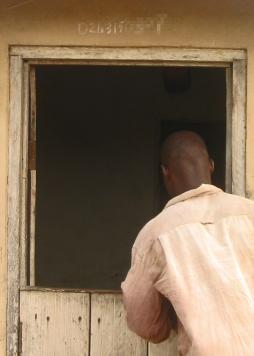

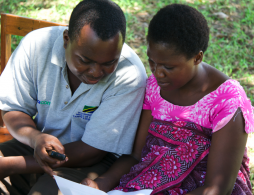

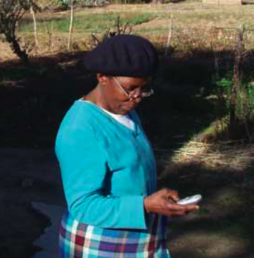
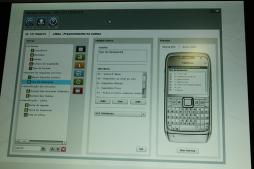
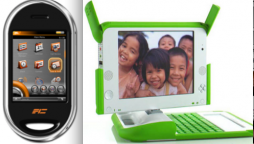
![image[38].png](../../files/imagecache/blogimage/image[38].png)
